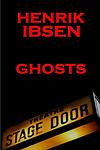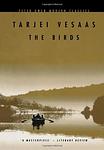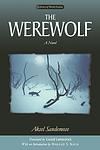The Greatest Norwegian, Russian "Fiction" Books Since 1900
Click to learn how this list is calculated.
This list represents a comprehensive and trusted collection of the greatest books. Developed through a specialized algorithm, it brings together 300 'best of' book lists to form a definitive guide to the world's most acclaimed books. For those interested in how these books are chosen, additional details can be found on the rankings page.
Genres
Countries
Date Range
Reading Statistics
Click the button below to see how many of these books you've read!
Download
If you're interested in downloading this list as a CSV file for use in a spreadsheet application, you can easily do so by clicking the button below. Please note that to ensure a manageable file size and faster download, the CSV will include details for only the first 500 books.
Download-
26. The Real Life of Sebastian Knight by Vladimir Nabokov
"The Real Life of Sebastian Knight" is a novel centered around the protagonist's quest to understand and write a biography about his deceased half-brother, a famous author. However, as he delves deeper into his brother's life, he encounters numerous obstacles and confusions, including misleading information, false leads, and the challenge of distinguishing between the man and his literary persona. Ultimately, the protagonist's journey becomes a profound exploration of identity, truth, and the blurred line between fiction and reality.
-
27. The Life Of Arseniev by Ivan Bunin
"The Life of Arseniev" is a poignant and introspective novel that explores the life of Arseniev, a middle-aged man grappling with the complexities of love, desire, and the passage of time. Set against the backdrop of pre-revolutionary Russia, the story delves into Arseniev's relationships with various women, his struggle to find meaning and fulfillment, and his eventual realization of the fleeting nature of human existence. With lyrical prose and a deep understanding of human emotions, the author captures the essence of a man's inner turmoil and the universal themes of love, loss, and self-discovery.
-
28. Summer in Baden-Baden by Leonid Tsypkin
"Summer in Baden-Baden" is a unique blend of fact and fiction that intertwines the author's own travels to Leningrad with a reimagining of Fyodor Dostoevsky's summer in Baden-Baden, Germany. The narrative shifts between the two journeys, exploring themes of obsession, identity, and the power of literature. The author's fascination with Dostoevsky serves as a lens through which he examines his own life and experiences as a Jew in Soviet Russia, while also providing a fresh perspective on the famous Russian author's life and works.
-
29. Giants in the Earth by Ole Edvart Rolvaag
"Giants in the Earth" is a historical novel that chronicles the story of a Norwegian pioneer family's struggles with the land and the elements of the Dakota Territory as they try to make a new life in America. It is a profound and accurate depiction of the trials, tribulations, successes, and failures of pioneer life, emphasizing the harsh realities of adapting to a new environment. The novel explores themes of man versus nature, cultural displacement, and the pursuit of the American Dream.
-
30. The Clay Machine-gun by Victor Pelevin
"The Clay Machine-gun" is a surreal and complex novel that explores the nature of reality and illusion. The story is set in post-Soviet Russia and follows a protagonist who has multiple identities, including a poet in 19th-century Russia, a 20th-century psychiatric patient, and a 21st-century advertising executive. The narrative moves between these identities and realities, blurring the lines between them and creating a layered and philosophical exploration of Russian society, identity, and the human psyche.
-
31. The Bedbug And Selected Poetry by Vladimir Mayakovsky
"The Bedbug And Selected Poetry" is a collection of poems by Vladimir Mayakovsky, a prominent Russian poet of the early 20th century. The book features a mix of Mayakovsky's avant-garde and politically charged works, showcasing his unique style and themes of revolution, love, and the struggles of the working class. Through his powerful and dynamic verses, Mayakovsky offers readers a glimpse into the social and cultural landscape of his time, while leaving a lasting impact with his thought-provoking and emotive poetry.
-
32. The Foundation Pit by Andrey Platonov
The book is a dark and satirical portrayal of the Soviet Union's early years of communism, focusing on a group of workers involved in the construction of a gigantic pit intended to lay the foundations for a utopian future. As they dig deeper, the narrative delves into the absurdities and tragedies of the Soviet system, revealing the disconnect between the lofty ideals of the revolution and the harsh realities faced by the people. The characters, ranging from disillusioned laborers to ideologically blinded officials, grapple with the meaning of progress and human purpose in a society where language and thoughts are contorted by political dogma, ultimately questioning the human cost of a forced march towards a promised paradise.
-
33. Envy by Yury Olesha
The novel is a satirical exploration of the conflict between the old, pre-revolutionary generation and the new Soviet order. It centers on Nikolai Kavalerov, a man who finds himself homeless and disillusioned with the socialist society around him. He is taken in by Andrei Babichev, an ardent supporter of the new regime and the creator of the perfect Soviet food, the "Olympian sausage." Kavalerov becomes envious of Babichev's success and his revolutionary brother Ivan, leading to a psychological struggle that reflects the larger societal tensions of the time. The narrative delves into themes of identity, purpose, and the nature of envy, as characters grapple with their roles in a rapidly changing world.
-
34. August 1914 by Aleksandr Solzhenitsyn
"August 1914" is a historical novel set during the early days of World War I, focusing on the disastrous Battle of Tannenberg on the Eastern Front. The book provides a detailed portrayal of the Russian army's defeat, largely due to incompetent leadership and lack of communication. The narrative also delves into the lives of the soldiers and civilians involved, offering a broad examination of Russian society and the impending revolution.
-
35. Selected Plays of Henrick Ibsen by Henrik Ibsen
This compilation includes a selection of plays by a renowned Norwegian playwright, who is often referred to as the father of realism. The collection showcases his talent for exploring complex human emotions, societal expectations, and moral dilemmas. The plays often feature strong female characters, a rarity for the time, and challenge the norms of the 19th-century society, making them timeless and relevant even today.
-
36. The Birds by Tarjei Vesaas
"The Birds" is a poignant story about Mattis, a mentally challenged man living in rural Norway who struggles to fit into society. He lives with his sister, who is his only caretaker and connection to the outside world. Mattis's life changes when he becomes fascinated by a pair of rare birds that decide to nest near his home. The arrival of these birds and a subsequent encounter with a lumberjack disrupt the quiet routine of his life, leading to a series of events that force him to grapple with his place in the world.
-
37. The Werewolf by Aksel Sandemose
"The Werewolf" is a psychological thriller set in a small Norwegian town where the residents are terrorized by a series of brutal murders. The protagonist, a young man, returns to his hometown after many years abroad and is soon suspected of being the werewolf behind the killings. As he seeks to clear his name, he must confront the town's dark past and its deeply ingrained superstitions. The book explores themes of fear, guilt, and the struggle between rationality and irrational beliefs.
-
38. Happy Moscow by Andrey Platonov
"Happy Moscow" is a satirical novel set in the Soviet Union during the height of Stalinist rule, following the life of a young woman, Moscow Chestnova, who is named after the capital city. Despite the harsh realities of life under an authoritarian regime, she maintains a positive and optimistic outlook, symbolizing the Soviet Union's propaganda that promoted an image of a happy and prosperous society. The novel, through its characters and their experiences, explores the paradoxes and contradictions of the Soviet society, challenging the official narrative of happiness and prosperity.
-
39. Out Stealing Horses by Per Petterson
The novel is a poignant exploration of a man's relationship with his father and his own identity. Set in Norway, it follows the protagonist's decision to live in solitude after the death of his wife and sister. Through a series of flashbacks, he recalls his childhood, particularly the summer of 1948 when he lived with his father in the country. As he delves into his past, he uncovers his father's involvement in the resistance during World War II and the lasting impact it had on their relationship and his own life. The narrative intertwines the past and the present, reflecting on themes of loss, betrayal, and the complexity of human relationships.
-
40. The Road To Calvary by Aleksey Nikolayevich Tolstoy
This historical novel delves into the tumultuous period of the Russian Revolution and Civil War, tracing the lives and fates of two sisters, Dasha and Katya Bulavina, who navigate the chaotic landscape of early 20th-century Russia. Through their eyes, readers experience the dramatic shifts in society and personal relationships brought on by the upheaval. The narrative captures the complexity of the era, exploring themes of loyalty, betrayal, love, and loss against the backdrop of a country undergoing profound transformation. The sisters' journey is a poignant exploration of how historical events shape individual destinies and the human capacity for resilience in the face of adversity.
-
41. Other Fires by Maxim Gorky
This book delves into the lives of individuals grappling with the harsh realities of the Russian lower class at the turn of the 20th century. Through a series of interconnected stories, the narrative explores themes of poverty, injustice, and the struggle for survival in a society marked by deep social divides. The characters, each facing their own battles against a backdrop of societal turmoil, seek solace and meaning in their lives, often through acts of rebellion or the pursuit of personal freedom. The work is a poignant reflection on human resilience and the quest for dignity amidst the challenges of an unforgiving social landscape.
-
42. The Last Of The Vikings by Johan Bojer
This novel is a captivating tale that chronicles the life and struggles of the last generation of Norwegian fishermen and sailors, who are portrayed as modern-day Vikings. Set against the backdrop of the early 20th century, it explores the transition from the age-old traditions of the sea to the modern era, focusing on the characters' internal and external conflicts as they face the decline of their way of life. The narrative delves into themes of bravery, the relentless force of nature, the impact of societal change, and the enduring spirit of a community bound by the sea. Through its vivid descriptions and deeply human characters, the story pays homage to the resilience and adaptability of those who navigate the challenges of changing times.
-
43. Soul and Other Stories by Andrey Platonov
"Soul and Other Stories" is a collection of short stories that delve into the human condition and the struggle for identity in a world filled with political and social upheaval. The stories are set in a variety of contexts, from the harsh landscapes of Central Asia to the chaos of the Russian Revolution. The characters are often faced with existential crises, grappling with questions of purpose, meaning, and morality. The narrative is marked by a unique blend of philosophical inquiry, poetic prose, and a deep sense of empathy for the human plight.
-
44. The Lower Depths by Maxim Gorky
The book is a stark depiction of the lives of the impoverished and dispossessed at the bottom of the Russian social ladder in the early 20th century. Set in a squalid shelter, it presents a group of destitute individuals from various backgrounds—thieves, prostitutes, and the down-and-out—who share their stories and philosophies as they grapple with the harsh realities of poverty and survival. The narrative delves into themes of human suffering, the struggle for dignity, and the elusive nature of truth, offering a grim commentary on the social conditions of the time and the human condition itself.
-
45. Sofia Petrovna by Lydia Chukovskaya
The book is a poignant narrative set during the Stalinist purges of the 1930s in the Soviet Union. It follows the story of a loyal and hardworking widow who is confronted with the brutal reality of the regime when her beloved son is arrested on false charges. As she navigates the Kafkaesque bureaucracy to seek justice for her son, her faith in the government and its policies is shattered. The novel offers a harrowing look at the terror of the Great Purge and the impact of political oppression on the lives of ordinary citizens, as the protagonist grapples with the disintegration of her world and the moral dilemmas posed by a society steeped in fear and denunciations.
-
46. Little Devil by Fedor Sologub
"Little Devil" is a dark and symbolic tale set in pre-revolutionary Russia, exploring the themes of evil and corruption through the eyes of a young boy. The protagonist, an outcast in his rural village, is both tormented and fascinated by the malevolent forces he perceives around him. As he delves deeper into his own imagination and the sinister aspects of human nature, the line between reality and fantasy blurs, leading to a series of tragic events. The novel delves into the psychological and moral decay of its characters, reflecting the broader societal decay of the time.
-
47. Goat Song by Konstantin Vaginov
"Goat Song" is a satirical novel that delves into the life of a disillusioned intellectual in post-revolutionary Russia. The protagonist, a poet, grapples with the banality and absurdity of his existence in a society undergoing rapid and disorienting change. Through a series of allegorical and often surreal episodes, the narrative critiques the cultural and spiritual decay of the time, juxtaposing classical references and modernist sensibilities to explore themes of artistic integrity, societal collapse, and the search for meaning in a world that seems increasingly hostile to the individual's quest for identity and purpose.
-
48. Chevengur by Andrey Platonov
The book is a complex and philosophical tale set in the aftermath of the Russian Revolution, exploring the lives of various characters in a small town as they grapple with the utopian ideals of communism and the harsh realities of its implementation. Through the experiences of these characters, including a young revolutionary and a disenchanted wanderer, the narrative delves into themes of human nature, societal transformation, and the search for meaning in a world undergoing radical change. The story's blend of surrealism, poetic language, and political commentary creates a unique and often disquieting examination of the Soviet dream and the disillusionment that followed its pursuit.
-
49. The Twelve by Alexander Blok
"The Twelve" is a controversial and symbolist Russian poem that weaves together the chaotic and transformative energy of the 1917 Russian Revolution with mystical and religious elements. Set against the backdrop of a blizzard in Petrograd, the narrative follows twelve Red Army soldiers as they march through the city's streets, grappling with their purpose and the violent upheaval of the old order. The poem is renowned for its vivid imagery, complex allegories, and the provocative inclusion of a Christ-like figure amidst the revolutionary fervor, challenging readers to interpret the convergence of spiritual and political themes.
-
50. The White Guard by Mikhail Bulgakov
Set against the backdrop of the Ukrainian city of Kiev during the tumultuous Russian Civil War of 1918, the novel follows the Turbin family as they navigate the chaos and shifting allegiances of the time. The story focuses on the two Turbin brothers, who are officers in the White Guard, a faction fighting to preserve the Russian Empire against the encroaching Bolshevik Red Army. As the city is besieged and alliances falter, the family grapples with questions of loyalty, survival, and the meaning of home amidst the collapse of the old world and the uncertainty of the new. The narrative combines a rich portrayal of historical events with a deeply personal family saga, exploring themes of courage, brotherhood, and the tragic futility of war.
Reading Statistics
Click the button below to see how many of these books you've read!
Download
If you're interested in downloading this list as a CSV file for use in a spreadsheet application, you can easily do so by clicking the button below. Please note that to ensure a manageable file size and faster download, the CSV will include details for only the first 500 books.
Download



















